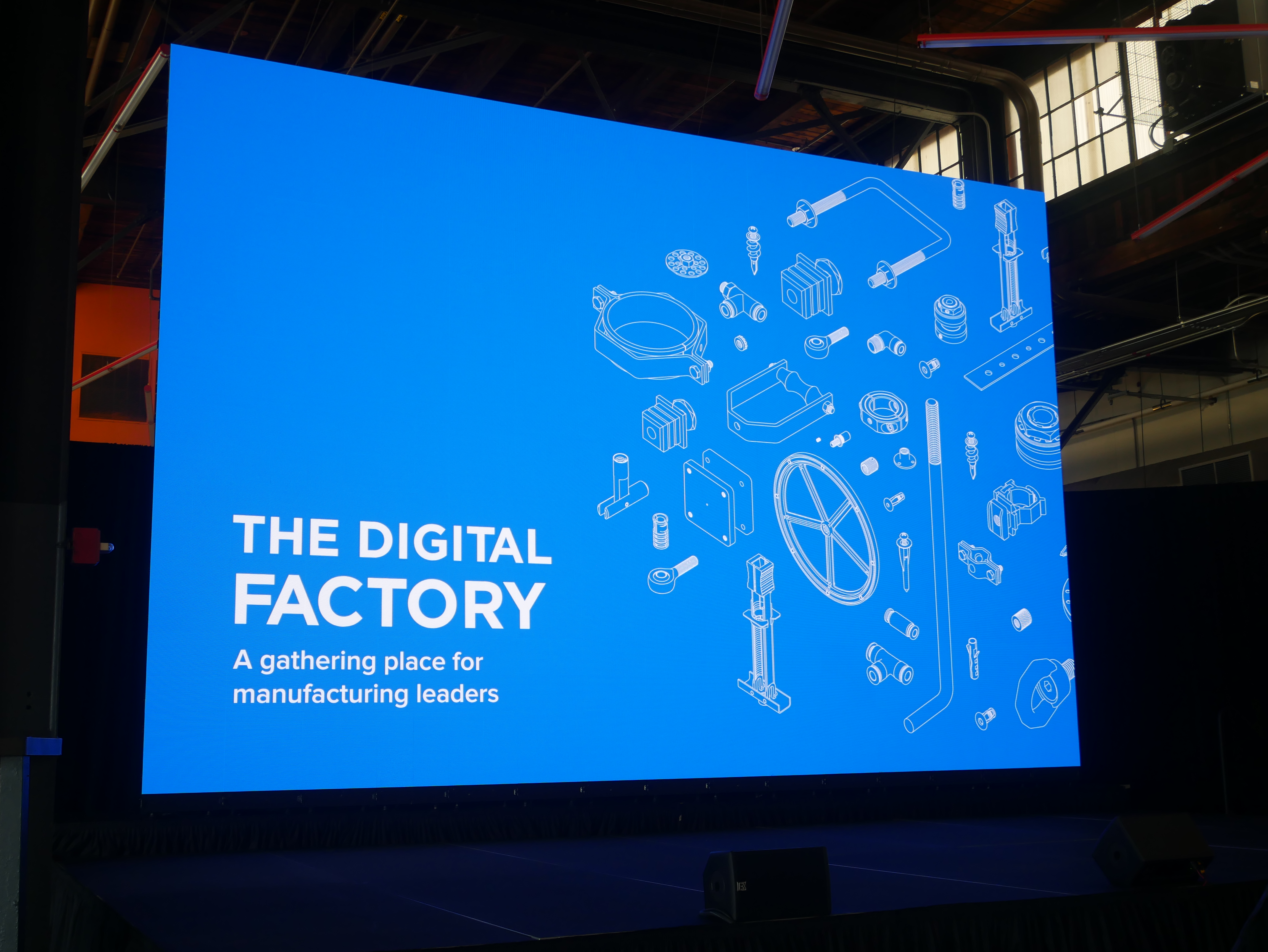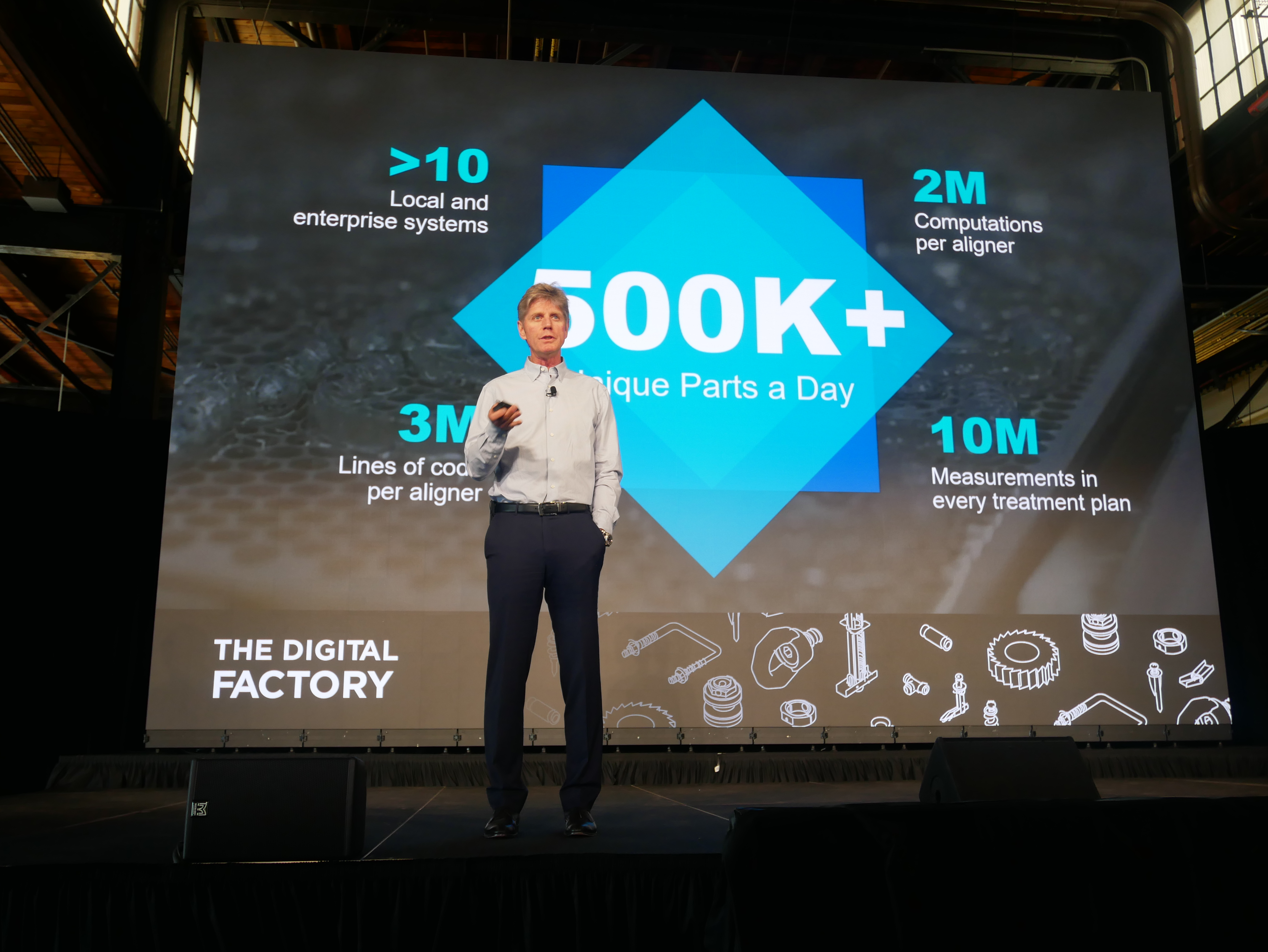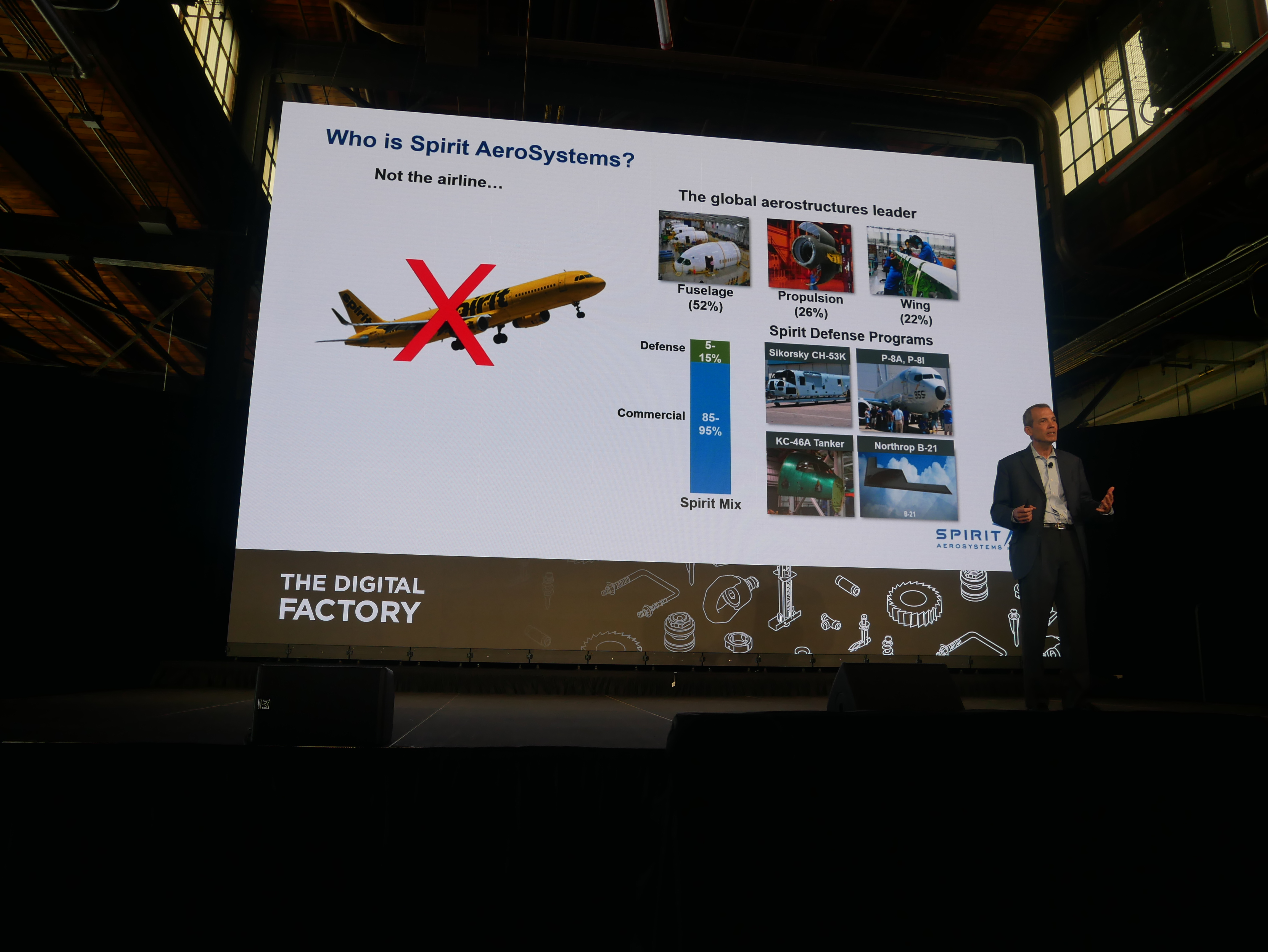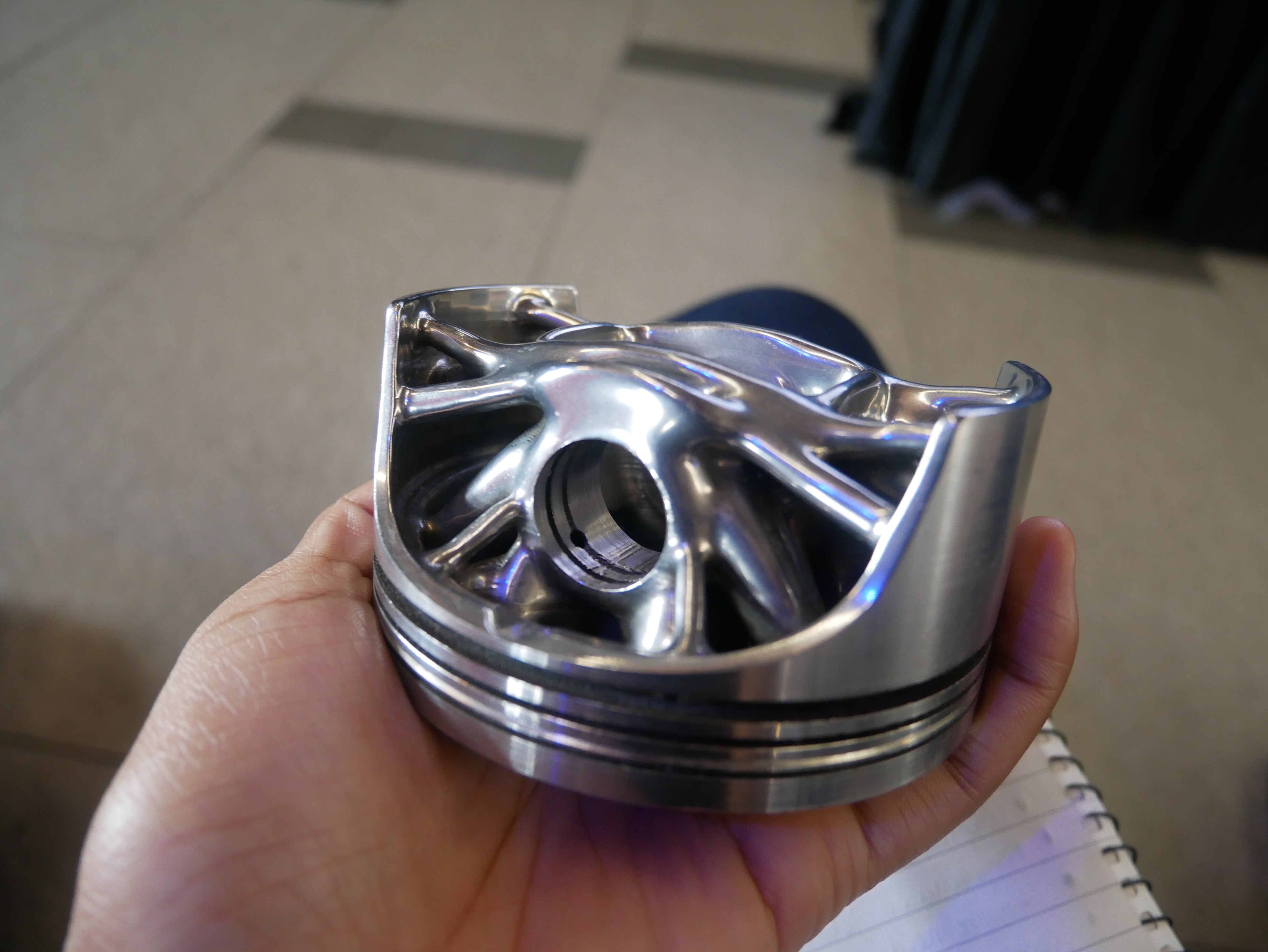The Digital Factory Conference and Formlabs User Summit has returned to Boston with leaders in dentistry, medicine, aerospace and automotive gathered to discuss the impact of new technologies such as 3D printing and how it’s transforming manufacturing.
3D Printing Industry joined the conference to learn more.
Now in its third edition, Formlabs, the Massachusetts-based manufacturer of the Form series of SLA 3D printers, hosts this two-day joint event, with over 800 people in attendance.
The first day of the Digital Factory Conference saw Align Technology, FedEx, Desktop Metal, and Spirit AeroSystems discussing the various ways digitization is integrated within manufacturing.

Digital dentistry and disruptiveness
Dentistry was prominent among the sectors represented in digitizing manufacturing. Joseph Hogan, CEO of Align Technology, commenced the keynote speeches discussing mass customization for everyday transformations. Align Technology is responsible for the Invisalign brand of clear-aligner orthodontics made using 3D printing.
According to Hogan, integrating stereolithography has enabled an analog to digital conversion of the company’s entire production and delivery workflow.
“Digitization allows for a lucrative business model. We have a team of 3000 dental CAD technicians who aid in the creation of our aligners. As a result, we can tackle 90% of the 12 million orthodontic cases that arise every year.”
Nevertheless, Hogan acknowledged differing reactions to additive manufacturing for orthodontic devices saying, “Invisalign is appropriately described as disruptive. Some dentists hate us, some love us, and many tolerate us. It’s understandable if it’s compared to traditional braces and retainers which correct teeth using pressured wires and bands. Our way just seems to simple.”
The figures presented by the Align Technology CEO are certainly impressive, with 3D printing playing an important function in making over half a million unique parts daily.

IoT, Aerospace, and additive manufacturing
Tom Gentile, President and CEO of Spirit AeroSystems, also recognized the advantages of additive manufacturing for his sector. Specifically, the project with Norsk Titanium for its first 3D printed fuselage component was used as an example of how the technology is reducing the buy-to-fly ratio as well as tackling increasing demand for aircraft.
“Increasing air traffic means more aircraft. To make an aircraft takes an estimated 9 years of development and we have a current backlog of 12,400 parts. Industry 4.0 technologies can help to accelerate productivity. Although we cannot yet 3D print parts directly for aircraft, IoT and AI can provide innovation for productivity.”
Gentile continued, “For example, data collected from fabrication and logistical processes can be used to accelerate learning curves.” Robert Carter, Chief Information Officer at FedEx, too mentioned the logistical benefits of digitization. “IOT and sensor-based logistics not only creates accountability for inventory but decreases build-up. What needs to be worked on are the standards to catalog digital inventory.”

Metal 3D printing and Industry 4.0
Desktop Metal is another local 3D printer manufacturer also based in Boston. The company’s founder and CEO, Ric Fulop, discussed how metal 3D printing is enabling Industry 4.0. “Compared to Powder Bed Fusion [PDF], Desktop Metal Single Pass Jetting [SPJ] costs less per KG.” According to Fulop, part cost stands at $50/kg as opposed to $700 to $2000/kg for PBF.
These cost savings, as well as the benefits of parts made to order, can increase productivity for aerospace, oil & gas, and automotive manufacturers. Based on research from the Wohlers Report 2019, Fulop added that the metal additive manufacturing market will be worth $90 billion in the next 10 years.

Vote for the 2019 3D Printing Industry Awards.
To find out more on the following Formlabs user Summit, subscribe to our 3D printing newsletter and follow us Facebook and Twitter.
Visit our 3D Printing Jobs board to find out more about opportunities in additive manufacturing.
Featured image shows inside the Digital Factory Conference. Photo by Tia Vialva.


